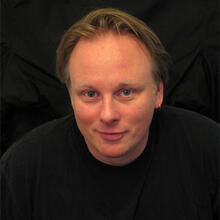Paul Elie is best known to readers as the author of The Life You Save May Be Your Own, an award-winning chronicle of the lives of Thomas Merton, Dorothy Day, Flannery O'Connor and Walker Percy that was published in 2003. After years of working his "day job" as an editor at the legendary publishing house Farrar, Straus and Giroux, Elie recently made the switch to the world of academia as a senior fellow at the Berkley Center for Religion, Peace, and World Affairs housed at my alma mater Georgetown University. While he will no doubt continue to work on his own books and contribute to the New YorkTimes, the Atlantic and Commonweal, Elie has now added 'blogger' to his list of credentials.
Through his work at Georgetown, he recently launched the blog "Everything that Rises." Taking its name from Jesuit Teilhard de Chardin's notion of evolution in a divinely ordered universe (“everything that rises must converge") as well as the Flannery O'Connor short story of the same name, the blog reflects Elie's diverse passions: books, music, religion and culture. His frequent postings move from meditations on John Coltrane and T-Bone Burnett (“Our Kind of Spirituals”) to commentary on the pope, Philip Roth, David Brooks and Ross Douthat (not necessarily in that order).
His entry regarding Rhett Miller's (Old 97's)review of a biography of the late indie songwriter Elliot Smith is an eloquent statement of purpose.
Purity of heart is the will to one thing" is how Kierkegaard put it, but maybe it took a songwriter to develop the idea with such clarity. In any case, the passage points right to the aims of Everything That Rises. In my writing life the “core issue” I always wind up puzzling over involves the nature and claims of a Catholic and Jesuit heritage — the heritage, of course, of Georgetown University, where this site has its origin and where I have found a voice. I hope that I and we will range far and wide here; I hope we’ll find ways to wrestle with the core issues that matter most to us in our lives. And I hope the Catholic and Jesuit inheritance, no matter how strenuously we reckon with it, will be present here the way it is present in my experience and in the experience of this university
Teilhard's notion of Complexification posits that matter is continually evolving in terms of both complexity and consciousness. In our age of unlimited connectivity, who among us would argue with the idea that our world has become enormously complex? The challenge is in whether we simply skate on the surface of it or do we attempt to move toward greater depth. Paul Elie's great value is his ability to sort through this increasing complexity to reveal deep, ancient and surprising connections. Definitely worth following...
------
ALSO...make sure to check out Kerry Weber's podcast interview with Tom Leopold. Leopold is comedy writer whose writing and production credits include classic sitcoms like "Seinfeld" and "Cheers," as well as writing for the Mark Twain Prize for American Humor. In the interview Leopold recounts his recent conversion from Judaism to Catholicism. Great stuff...








